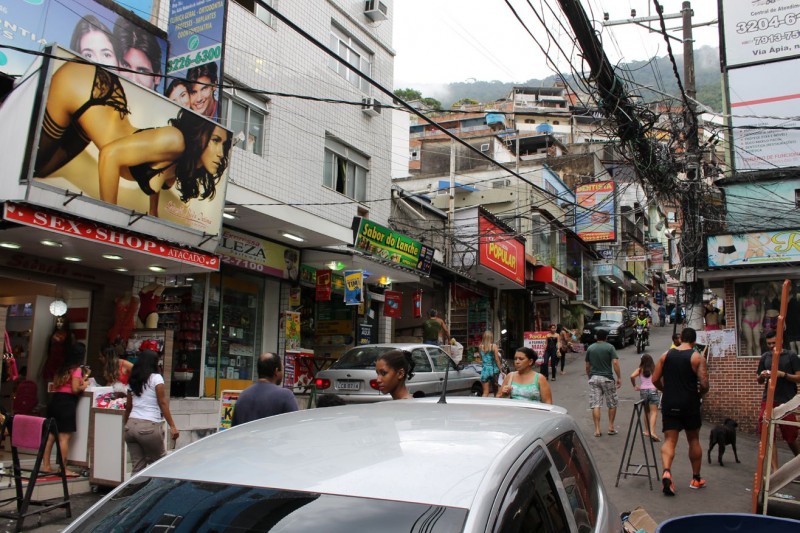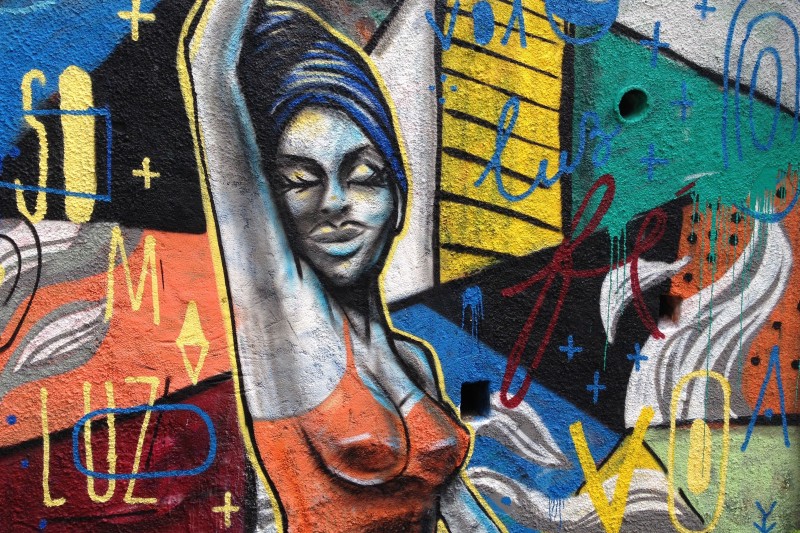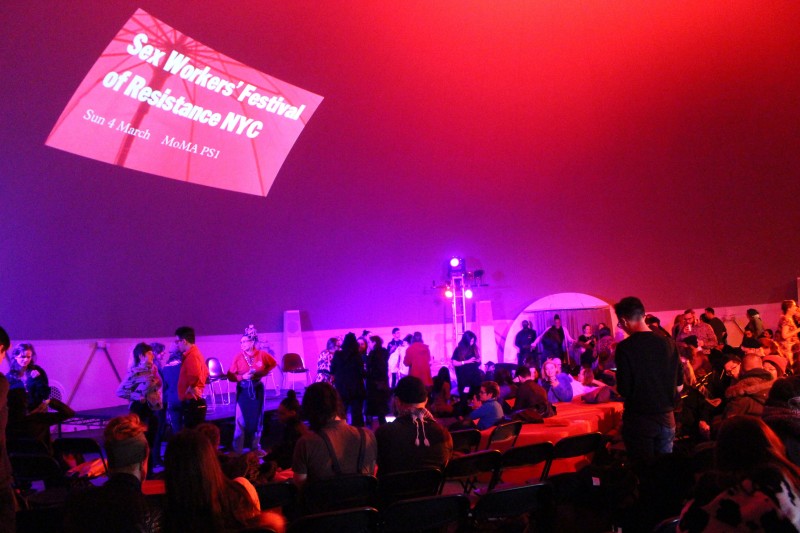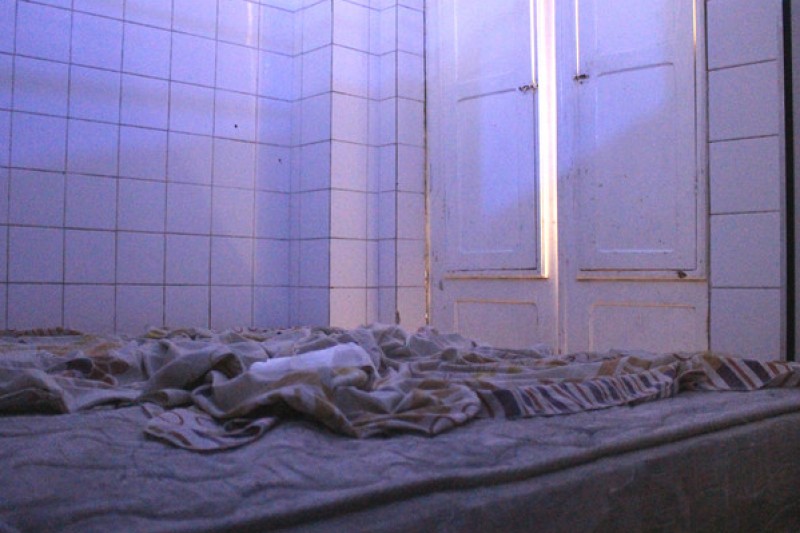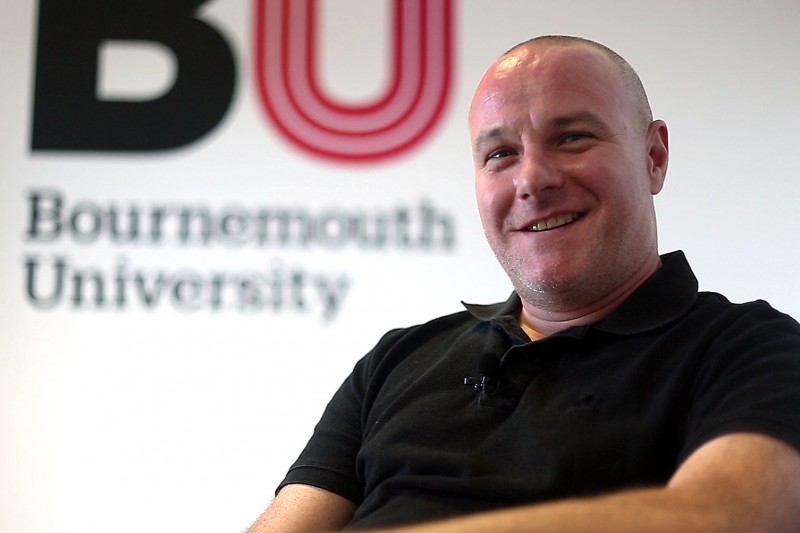In September 2017, the Federative Republic of Brazil integrated human rights education, activist protection and the reporting of violence against women into federal law. This transformation in law was achieved in part by this project which has examined how sex work is policed during sport mega-events (SMEs).
Sexual Spaces, an ESRC-funded project, provides the first academic study of sex workers which includes the voices of the sex workers themselves. The project has transformed the public understanding of sex work, provided increased protection for sex workers within Brazil and globally, and changed the way in which future host cities of SMEs will institute policies related to informal sexual economies.
The project is led by Deputy Dean for Research & Professional Practice in the Bournemouth University Business School, Professor Michael Silk, and in collaboration with the Federal University of Rio de Janeiro amongst other UK and North and South American universities. During the 2016 Rio Summer Olympics, the project examined the complexities of urban renewal, relationships between police, city officials and sex workers, and places of sexual commerce.
Professor Michael Silk discusses his research on sex workers at the Olympics
Looking back to London
Professor Silk’s previous work on SMEs has focused on event-led urban regeneration which often tended to privilege certain groups while marginalising others. For example, urban regeneration in East London following the 2012 Olympics has meant that it is now perceived to be a safe and secure place for leisure, working and living. However, Professor Silk has found that the voices of marginalised Londoners who were subject to increased regulation have been largely absent from academic work.
Professor Silk says: “In analysis of Rio de Janeiro we wanted to develop an evidence base that told the stories of those who are often deemed to be unwelcome, subject to new criminal codes or physically dispersed. We wanted to elevate these voices so as to ensure that SMEs do not simply become a reflection of wealth.
“There was one group whom we felt were rather ambiguous in the narrative being put forth by the Brazilian government: sex workers. In part, sex workers are demonised and habitually critiqued for not fitting into a modern Brazilian neoliberal. Yet, in part, Rio’s (tourist) narrative is predicated on an exotic body politic, one embodied by the image of the sex worker. Ensuring their voices are part of the event narrative is crucial with respect to understanding the impact of event-led urban renewal on the entire citizenry.”
Examining the consequences
Displacing sex workers during SMEs can have wide-reaching consequences for the safety of those individuals. By providing a better understanding of the spatial regulation of informal sex economies during SMEs, this project has helped improve the quality of life for the estimated 40 million sex workers who operate in Brazil and globally.
Research on cities that host global sporting events has often addressed national identity making, media representation and urban regeneration. There has been far less emphasis on the informal economies which surround such events, with even less focus on the relationship between sporting events, urban regeneration and sexual landscapes.
Media speculation often points to heightened demand for sexual services around SMEs, with such reports used to justify policing and other social control measures, rationalising city ‘cleansing’, displacing sex work from the spaces which become visible to international audiences in the context of a major sporting event.
Sexual Spaces research has uncovered the everyday realities for sex workers, developing an evidence base that show how event-led urban renewal justified eviction enhanced regulation and security, and intensified marginalisation of sex work.
Bia, a sex worker in Rio, talking to Sexual Spaces
What makes me uncomfortable isn’t being here prostituting myself, it’s having to pay the police. This has been going on for years. It’s an old problem. If you don’t pay [the police], they close you down. They’re the real pimps.
Evidence was then shared at two major events; one in Rio and one in the UK, at which policymakers, lawyers, academics, sex workers and non-governmental organisations created a series of recommendations for future host cities, sex worker support groups, the media, and national governments.
Working with the UN
An additional report, submitted to the UN Universal Periodic Review, detailed the harsh realities of local women during event-led urban renewal. As a result of the report, one Brazilian sex worker was invited to attend the UN General Assembly in Geneva, Switzerland. Celebrated for her activism, she discussed the state-sanctioned eviction of 120 women from an infamous venue of commercial sex.
This contribution to the UN Assembly reasserted the necessity for sex worker voice to aid in the creation of new policies and strategies which can support vulnerable people. The UN subsequently recommended to the Brazilian legislature that authorities improve underreporting of sexual violence and harassment by developing policies to prevent and punish such illegalities and protect human rights defenders and their families. Further, the UN requested the legislature combat police violence against women through capacity-building programmes for all legal personnel.
In response, the Federative Republic of Brazil demonstrated how each recommendation would be enacted into federal law and how human rights education would be integrated into school curricula. The government also passed laws to increase protection for human rights defenders, as well as initiating an awareness campaign and hotline which can be used to report cases of violence against women.
During the project research, the team had invited women involved in sexual commerce amidst the 2016 Olympics to visually document everyday life. Volunteers kept daily visual and audio diaries, sharing images and voice messages through a group chat in WhatsApp. With the help of professional photographers, these experiences developed into a photo project which was curated into an exhibition for the Hélio Oiticica Municipal Art Centre in Rio de Janeiro.
The virtual exhibition contains testimonials from those involved in the project.
Gabi, project participant
It was such an innovative and motivating process. I feel full of hopes and expectations. It is the expectation of a better future. I felt very accomplished. The key word for me is achievement, and I feel like I achieved something.
The photo exhibition was then converted into a virtual exhibition and short film, both of which debuted at the Sex Workers’ Festival of Resistance at the Museum of Modern Art (MoMA), New York City.
The exhibition has since become a silent auction, initially hosted at the International Conference of the Brazilian Studies Association, Rio de Janeiro, in July 2018. The event was attended by a range of academics, policy makers, charities, legal professionals and sex workers. In October 2018, an event, attended by past and future host cities for mega sporting events, created a series of recommendations for future host cities, sex worker support groups, the media, and national governments.
Local organising committees for future SMEs are now required to plan and produce policy related to informal sex economies, in conjunction with charities, support workers, police, local councils and officials. This research evidence will enable future policy makers to promote inclusivity in event-led urban regeneration which can locally ensure protection and support for sex workers.
